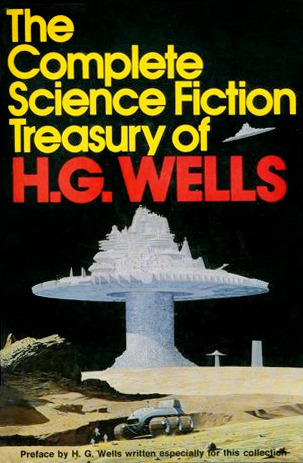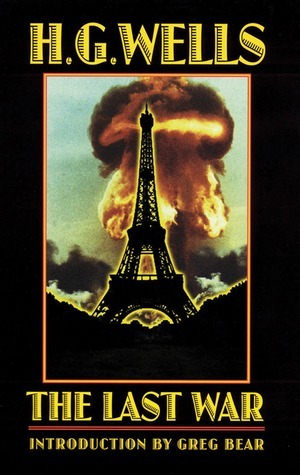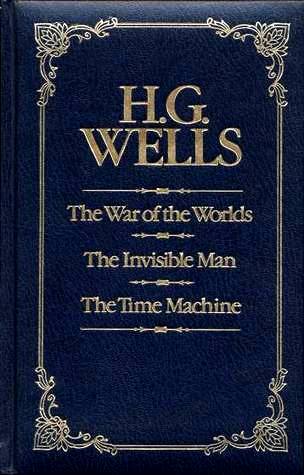
The Time Machine / The War of the Worlds
Book Description
What if time travel held the key to humanity's survival—or its annihilation? In 'The Time Machine / The War of the Worlds,' H.G. Wells propels you through a breathtaking journey from the distant past to a harrowing future, where an unwitting inventor confronts both the marvels and terrors of time and alien conquest. Experience heart-pounding encounters as civilizations clash and one man's desperate struggle reveals the fragility of existence. With each twist and turn, the stakes soar higher—can humanity endure the ultimate test? Will the dreams of progress unravel in the face of cosmic horrors?
Quick Book Summary
"The Time Machine / The War of the Worlds" combines two seminal science fiction novels by H.G. Wells, both exploring the limits of human knowledge and the unpredictable consequences of scientific progress. In "The Time Machine," a Victorian-era inventor constructs a device that transports him to a distant, dystopian future, only to discover that humanity has evolved into two divergent species, exposing the dark side of social and technological advancement. "The War of the Worlds" thrusts readers into a terrifying contemporary invasion as Martians descend upon Earth with superior technology, nearly eradicating humanity. Through riveting narratives and cautionary themes, Wells challenges the belief in human supremacy and progress, prompting reflection on survival, adaptation, and ethical responsibility in the face of unknown cosmic threats.
Summary of Key Ideas
Table of Contents
Consequences of Scientific Innovation
In "The Time Machine," Wells introduces a visionary scientist known only as the Time Traveller, who invents a machine capable of traversing the fabric of time. He journeys hundreds of thousands of years into the future, where he encounters two distinct post-human species: the childlike, gentle Eloi and the subterranean, predatory Morlocks. The Eloi live in apparent ease, but their society is revealed to be the result of social and evolutionary stagnation, while the Morlocks, who maintain the machinery and live underground, prey upon them. The protagonist’s quest to recover his stolen time machine exposes the complexities and perils of unchecked progress.
Fragility of Human Civilization
Simultaneously, "The War of the Worlds" unfolds in late Victorian England, erupting with the dramatic arrival of Martian cylinders from outer space. Initially met with curiosity, the Martians soon unleash havoc with advanced weaponry and impenetrable tripods. Humanity is rendered powerless against this overwhelming force, revealing the vulnerability and hubris of mankind when confronted with extraterrestrial intelligence. Through the eyes of a nameless narrator, the devastation and chaos that follow force individuals and societies to confront their own limitations, strengths, and the instinctual drive to survive.
Social Class and Evolution
Both novels delve deeply into the consequences of scientific innovation. The Time Traveller’s curiosity and the Martians’ technological superiority serve as central catalysts for the events that unfold. Wells scrutinizes the potential of human knowledge to both create and destroy, illuminating the ethical and existential dilemmas that progress entails. The books question whether advancements in science and technology necessarily lead to improvement, or if they can bring about unforeseen disasters, urging readers to approach innovation with caution and humility.
Humanity Versus the Unknown
The social commentary embedded within both stories explores class distinctions and evolutionary ideas prevalent during Wells’s era. In "The Time Machine," the split between Eloi and Morlocks reflects anxieties about social decay, privilege, and the long-term outcomes of class segregation. In "The War of the Worlds," the sudden reversal of power between humans and Martians uncovers the fragile foundations of society, forcing a re-examination of anthropocentric beliefs and colonial attitudes.
Hope and Adaptation
Ultimately, Wells offers not just caution, but also hope. In witnessing the rise and fall of civilizations, individuals survive by adapting—whether the Time Traveller’s desperate ingenuity or the narrator’s persistence in evading the Martians. Both stories end on ambiguous, thoughtful notes, as humanity confronts its place in the universe and the enduring need for resilience. Wells’s twin masterpieces remain enduring testaments to the power, peril, and promise inherent in human curiosity and adaptation.
Download This Summary
Get a free PDF of this summary instantly — no email required.





